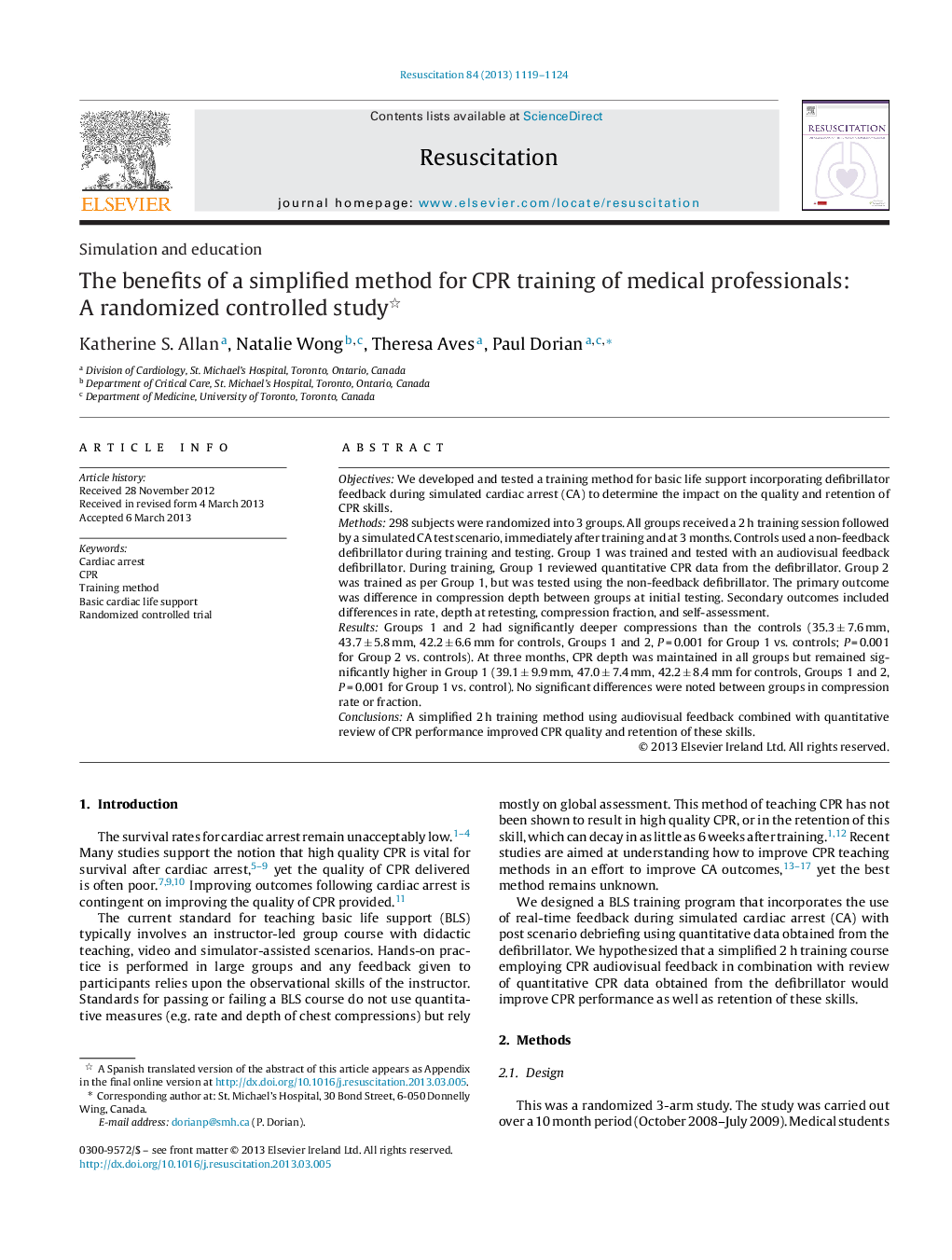| Article ID | Journal | Published Year | Pages | File Type |
|---|---|---|---|---|
| 3008256 | Resuscitation | 2013 | 6 Pages |
ObjectivesWe developed and tested a training method for basic life support incorporating defibrillator feedback during simulated cardiac arrest (CA) to determine the impact on the quality and retention of CPR skills.Methods298 subjects were randomized into 3 groups. All groups received a 2 h training session followed by a simulated CA test scenario, immediately after training and at 3 months. Controls used a non-feedback defibrillator during training and testing. Group 1 was trained and tested with an audiovisual feedback defibrillator. During training, Group 1 reviewed quantitative CPR data from the defibrillator. Group 2 was trained as per Group 1, but was tested using the non-feedback defibrillator. The primary outcome was difference in compression depth between groups at initial testing. Secondary outcomes included differences in rate, depth at retesting, compression fraction, and self-assessment.ResultsGroups 1 and 2 had significantly deeper compressions than the controls (35.3 ± 7.6 mm, 43.7 ± 5.8 mm, 42.2 ± 6.6 mm for controls, Groups 1 and 2, P = 0.001 for Group 1 vs. controls; P = 0.001 for Group 2 vs. controls). At three months, CPR depth was maintained in all groups but remained significantly higher in Group 1 (39.1 ± 9.9 mm, 47.0 ± 7.4 mm, 42.2 ± 8.4 mm for controls, Groups 1 and 2, P = 0.001 for Group 1 vs. control). No significant differences were noted between groups in compression rate or fraction.ConclusionsA simplified 2 h training method using audiovisual feedback combined with quantitative review of CPR performance improved CPR quality and retention of these skills.
